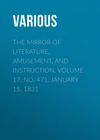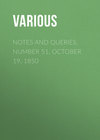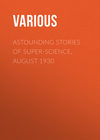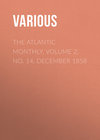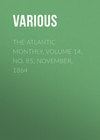Loe raamatut: «Happy Days for Boys and Girls», lehekülg 6
THE IRON RING
CHANG WANG was a Chinaman, and was reputed to be one of the shrewdest dealers in the Flowery Land. If making money fast be the test of cleverness, there was not a merchant in the province of Kwang Tung who had earned a better right to be called clever. Who owned so many fields of the tea-plant, who shipped so many bales of its leaves to the little island in the west, as did Chang Wang? It was whispered, indeed, that many of the bales contained green tea made by chopping up spoiled black tea leaves, and coloring them with copper – a process likely to turn them into a mild kind of poison; but if the unwholesome trash found purchasers, Chang Wang never troubled himself with the thought whether any one might suffer in health from drinking his tea. So long as the dealer made money, he was content; and plenty of money he made.
But knowing how to make money is quite a different thing from knowing how to enjoy it. With all his ill-gotten gains, Chang Wang was a miserable man; for he had no heart to spend his silver pieces, even on his own comfort. The rich dealer lived in a hut which one of his own laborers might have despised; he dressed as a poor Tartar shepherd might have dressed when driving his flock. Chang Wang grudged himself even a hat to keep off the rays of the sun. Men laughed, and said that he would have cut off his own pigtail of plaited hair, if he could have sold it for the price of a dinner!
Chang Wang was, in fact, a miser, and was rather proud than ashamed of the hateful vice of avarice.
Chang Wang had to make a journey to Macao, down the great River Yang-se-kiang, for purposes of trade. The question with the Chinaman now was, in what way he should travel.
“Shall I hire a palanquin?” thought Chang Wang, stroking his thin mustaches; “no, a palanquin would cost too much money. Shall I take my passage in a trading vessel?”
The rich trader shook his head, and the pigtail behind it – such a passage would have to be paid for.
“I know what I’ll do,” said the miser to himself; “I’ll ask my uncle Fing Fang to take me in his fishing-boat down the great river. It is true that it will make my journey a long one; but then I shall make it for nothing. I’ll go to the fisherman Fing Fang, and settle the matter at once.”
The business was soon arranged, for Fing Fang would not refuse his rich nephew a seat in his boat. But he, like every one else, was disgusted at Chang Wang’s meanness; and as soon as the dealer had left his hovel, thus spoke Fing Fang to his sons, Ko and Jung: —
“Here’s a fellow who has scraped up money enough to build a second Porcelain Tower, and he comes here to beg a free passage in a fishing-boat from an uncle whom he has never so much as asked to share a dish of his birds’-nests soup!”
“Birds’-nests soup, indeed!” exclaimed Ko; “why, Chang Wang never indulges in luxuries such as that. If dogs’ flesh were not so cheap, he’d grudge himself the paw of a roasted puppy!”
“And what will Chang Wang make of all his money at last?” said Fing Fang, more gravely; “he cannot carry it away with him when he dies.”
“O, he’s gathering it up for some one who will know how to spend it!” laughed Jung. “Chang Wang is merely fishing for others; what he gathers, they will enjoy.”
It was a bright, pleasant day when Chang Wang stepped into the boat of his uncle, to drop slowly down the great Yang-se-kiang. Many a civil word he said to Fing Fang and his sons, for civil words cost nothing. Chang Wang sat in the boat, twisting the ends of his long mustaches, and thinking how much money each row of plants in his tea-fields might bring him. Presently, having finished his calculations, the miser turned to watch his relations, who were pursuing their fishing occupation in the way peculiar to China. Instead of rods, lines, or nets, the Fing Fang family was provided with trained cormorants, which are a kind of bird with a long neck, large appetite, and a particular fancy for fish.
It was curious to watch a bird diving down in the sunny water, and then suddenly come up again with a struggling fish in his bill. The fish was, however, always taken away from the cormorant, and thrown by one of the Fing Fangs into a well at the bottom of the boat.
“Cousin Ko,” said the miser, leaning forward to speak, “how is it that your clever cormorants never devour the fish they catch?”
“Cousin Chang Wang,” replied the young man, “dost thou not see that each bird has an iron ring round his neck, so that he cannot swallow? He only fishes for others.”
“Methinks the cormorant has a hard life of it,” observed the miser, smiling. “He must wish his iron ring at the bottom of the Yang-se-kiang.”
Fing Fang, who had just let loose two young cormorants from the boat, turned round, and from his narrow slits of Chinese eyes looked keenly upon his nephew.
“Didst thou ever hear of a creature,” said he, “that puts an iron ring around his own neck?”
“There is no such creature in all the land that the Great Wall borders,” replied Chang Wang.
Fing Fang solemnly shook the pigtail which hung down his back. Like many of the Chinese, he had read a great deal, and was a kind of philosopher in his way.
“Nephew Chang Wang,” he observed, “I know of a creature (and he is not far off at this moment) who is always fishing for gain – constantly catching, but never enjoying. Avarice – the love of hoarding – is the iron ring round his neck; and so long as it stays there, he is much like one of our trained cormorants – he may be clever, active, successful, but he is only fishing for others.”
I leave my readers to guess whether the sharp dealer understood his uncle’s meaning, or whether Chang Wang resolved in future not only to catch, but to enjoy. Fing Fang’s moral might be good enough for a heathen, but it does not go nearly far enough for a Christian. If a miser is like a cormorant with an iron ring round his neck, the man or the child who lives for his own pleasure only, what is he but a greedy cormorant with the iron ring? Who would wish to resemble a cormorant at all? The bird knows the enjoyment of getting; let us prize the richer enjoyment of giving. Let me close with an English proverb, which I prefer to the Chinaman’s parable – “Charity is the truest epicure, for she eats with many mouths.”
A. L. O. E.
SUMMER
I’M coming along with a bounding pace
To finish the work that Spring begun;
I’ve left them all with a brighter face,
The flowers in the vales through which I’ve run.
I have hung festoons from laburnum trees,
And clothed the lilac, the birch and broom;
I’ve wakened the sound of humming-bees,
And decked all nature in brighter bloom.
I’ve roused the laugh of the playful child,
And tired it out in the sunny noon;
All nature at my approach hath smiled,
And I’ve made fond lovers seek the moon.
For this is my life, my glorious reign,
And I’ll queen it well in my leafy bower;
All shall be bright in my rich domain;
I’m queen of the leaf, the bud and the flower.
And I’ll reign in triumph till autumn-time
Shall conquer my green and verdant pride;
Then I’ll hie me to another clime
Till I’m called again as a sunny bride.
CHARLIE’S CHRISTMAS
OH how cold and miserable everything is! Hardly a thought to be uppermost on Christmas eve in the mind of a little school-boy; and yet it was that which filled the mind of Charlie Earle on the Christmas eve of which I am going to tell you. Only a few hours before, he had been as happy as any boy could be. Everybody was going home, and everybody was in the highest spirits and full of the most delightful hopes of what the holidays would bring them; and now everybody except Charlie has gone home, and he is left alone in the dreary school-room, knowing that at any rate Christmas day, and maybe many other days, are to be spent away from home, and from all the pleasant doings which he had pictured to himself and others only the very day before.
The coming of the post-bag had been scarcely noticed in the school-room that morning. So when old Bunce, the butler, looked in at the door and said, “Master Earle is wanted in the doctor’s room,” the boys all wondered, and Charlie’s neighbor whispered to him, “Whatever can he want you for, Earle?” The doctor’s tale was soon told, and it was one which sent Charlie back to the school-room with a very different face to the one with which he had left it. A letter had come to Doctor West from Charlie’s father, and in it a note from his mother to Charlie himself, written the night before, and saying that a summons had come that very morning calling them to Charlie’s grandmother, who was very ill, and that they were starting for Scotland that night and would be almost at their journey’s end when Charlie got the news. The note said that Laura, Charlie’s sister, would go with them, but that they could not wait for Charlie himself, so they had written to Mrs. Lamb, Charlie’s old nurse, who lived about ten miles from Dr. West’s, and had asked her to take charge of him for a day or two, till more was known of his grandmother’s state and some better plan could be made for him. It was sad enough for Charlie to hear of the illness of his kind old grandmother – sad enough to see the merry start of the other boys, while he had to stay behind; but to have to think of Christmas day spent away from father and mother, away from Laura and home, was excuse enough for a few bitter tears. But unpleasant things come to an end as well as pleasant ones, and Charlie’s lonely waiting in the school-room came to its end, and he found himself that afternoon snugly packed into the Blackridge coach, and forgetting his own troubles in listening to the cheery chatter of the other passengers, and in looking at what was to be seen as the coach rolled briskly along the snow-covered road. It was quite dark when they reached Blackridge, and Charlie looked out at the people gathered round the door of the “Packhorse Inn,” and a sudden fear filled his mind lest there should be no one there to meet him; but he soon saw by the light at the inn door Nurse Lamb herself, with her kind face looking so beaming that it seemed a little bit like really going home.
“Here, father,” said Nurse Lamb to her jolly-looking husband; “here’s Master Charlie, safe and sound! You bring the luggage in the barrow while I take him home quick, for I am sure he must be cold.”
And so nurse bustled Charlie off down a lane and across a meadow, till they came to a wicket-gate, beyond which stood the back of a low, deep-thatched cottage half buried in snow. On getting round to the front the door was opened by a little girl, and nurse called out, “Here, Molly, here we are;” adding, “Molly is my step-daughter, Master Charlie – the one I used to tell you about before I was married, when we were down at Hastings.”
When they got into the house, there was the kitchen with its rows of bright pewter plates, its wide hearth and roaring fire, its hams hanging to the beams, all just as they had been described in the days when nurse’s new home at Blackridge Farm was a subject of never-ending interest to the two children in Mrs. Earle’s nursery.
After he had had a capital tea, Charlie was allowed to go round with the farmer to see that the horses were all right for the night, Charlie carrying the lantern and feeling himself quite a man as he followed the farmer into the stable. There was much coming and going at the farm that evening, for was it not Christmas eve? and nurse was busy sending off gifts to neighbors who were not so thriving as herself, and busy, too, in making preparations for the morrow. Charlie meanwhile sat in the settle and made friends with Molly, who was about his own age and knew much more, though she was only a girl, about dogs and rabbits and tadpoles than London-bred Charlie. By and by they helped to stir the great plum-pudding, and dressed the kitchen and parlor with evergreens, till nurse called them to come and hear the chimes.
And Charlie thought it very beautiful as he stood at the door and listened to the bells. And as they stood there the wind wafted to them also the voices of the choir as they went on their round through the village, singing their carols; and then Charlie went to bed with “Hark, the herald angels sing!” ringing in his ears.
Next morning Charlie, as he ran down stairs, could hardly believe this was really Christmas day, all was so unlike any Christmas he had known before; but in the kitchen he found one thing like the Christmas mornings at home, for he found quite a little pile of parcels beside his plate, containing the pretty gifts prepared by father and mother and Laura, and sent by them to nurse, so that at any rate the little lad should not be robbed of this part of his Christmas pleasures. There was a note, too, from mother, saying that she and father and Laura were safe in Edinburgh, and that grandmother was better, and that she hoped to tell him in her next letter when they and he should meet at home in London. Such a bright beginning was enough to make all the rest of the day bright; and bright it was. Charlie found plenty to do till church-time, as Molly showed him all the nooks and corners about the farm.
The old church, with its high pews and country congregation made Charlie feel that he must be dreaming. Surely it could not be Christmas, but must be the autumn? and he and Laura and everybody had come away from London for the holidays?
No; it was no dream. It was really Christmas; for there, round the pillars, were the holly-wreaths with their red berries, and there, behind the chancel-screen, were the same Christmas texts as in their church in London. When service was over, Charlie and Molly hurried home to help Martha, the farm-girl, to have all in readiness for the Christmas dinner. But after dinner there was not much sitting still – at any rate for Charlie; for who could think of sitting still indoors, when outside there were a pond covered with ice and a farmyard full of horses and dogs?
Nor was the evening after tea without its pleasure. When the snow began to fall, and the doors and windows were tightly closed, then a huge log was piled on the fire; and while Farmer and Mrs. Lamb sat and talked before it in the parlor, Charlie and Molly had a fine game of romps in the big kitchen with Martha; and when they were tired of that, they sat on the hearth and roasted chestnuts, while nurse read a Christmas tale to them.
And here I must leave Charlie finishing his Christmas day, hoping that any who read this story of it may agree with Charlie in thinking, when he laid his head on the pillow that night, that, though it had been spent far from home, it had not been an unhappy day, after all.
MARCELLIN
MARCELLIN, a young shepherd boy, who tended his father’s flock upon the mountains, having penetrated a deep gorge to search for one of his sheep which was missing, discovered in the thickest of the forest a man lying upon the ground overcome with fatigue, and faint from want of food.
“My poor lad,” said the man, “I am dying from hunger and thirst. Two days ago I came upon this mountain to hunt. I lost my way, and I have passed two nights in the woods.”
Marcellin drew some bread and cheese from his knapsack, and gave to the stranger.
“Eat,” he said, “and then follow me. I will conduct you to an old oak tree, in the trunk of which we shall find some water.”
The food satisfied his hunger; then he followed Marcellin, and drank of the water, which he found excellent. Afterwards the boy conducted him down the mountain, and pointed out the way to the city.
Then the hunter said to the shepherd boy, “My good lad, you have saved my life. If I had remained in the mountain another night, I should have died. I will show you my gratitude. Come with me to the city. I am rich; and I will treat you as if you were my own son.”
“No, sir,” said Marcellin; “I cannot go with you to the city. I have a father and a mother who are poor, but whom I love with all my heart. Were you a king, I would not leave my parents.”
“But,” said the hunter, “you live here in a miserable cabin with an ugly thatched roof; I live in a palace built of marble, and surrounded with statues. I will give you drink in glasses like crystal, and food upon plates of silver.”
“Very likely,” responded Marcellin; “but our house is not half as miserable as you suppose. If it is not surrounded with statues, it is among fruit trees and trellised vines. We drink water which we get from a neighboring fountain. It is very clear, though we do not drink from crystal cups. We gain by our labor a modest living, but good enough. And if we do not have silver ware in our house, we have plenty of flowers.”
“Nonsense, my boy! Come with me,” said the hunter; “we have trees and flowers in the city more beautiful than yours. I have magnificent grounds, with broad alleys, with a flower garden filled with the most precious plants. In the middle of it there is a beautiful fountain, the like of which you never saw. The water is thrown upward in small streams, and falls back sparkling into the great white marble basin. You would be quite happy to live there.”
“But I am quite happy here,” replied Marcellin. “The shade of our forests is at least as delicious as that of your superb alleys. Our fields are running over with flowers. You can hardly step without finding them under your feet. There are flowers around our cottage – roses, violets, lilies, pansies. Do you suppose that our fountains are less beautiful than your little jets of water? You should see the merry brooks bounding down over the rocks, and running away through the flowery meadow.”
“You don’t know what you refuse,” rejoined the hunter. “If you go into the city, you will be put to school, where you can study all departments of art and science. There are theatres, where skilful musicians will enchant your ears by harmony. There are rich saloons, to which you will be admitted, to enjoy splendid fêtes. And since you so much love the country, you shall pass your summer vacation with me in a superb chateau which I possess.”
“Well, I am greatly obliged to you,” replied the shepherd boy; “but I think I had better stop with father and mother. I can learn everything useful in our village school. I am taught to fear God, to honor my parents, and to imitate their virtues. I don’t wish to learn anything beyond that. Then your musicians, which you tell about, do they sing any better than the nightingale or the golden robin? Then we have our concerts and our fêtes. We are right down happy when we are all together on Sunday evening under the trees. My sister sings, while I accompany her upon my flute. Our chants can be heard a long way off, and echo repeats them. And in the evening, when we stay in the house, grandfather is with us. We love him so much because he is so good. No, I will not leave my parents. I will not renounce their home, if it is humble. I cannot go to the city with you.”
The hunter saw that it was of no use to argue the point; so he said, —
“What shall I give you, then, to express my gratitude for your services? Take this purse, filled with gold.”
“What need have I of it? We are poor, but we want nothing. Besides, if I accept your money, I should sell the little service I have been able to render. That would be wrong; my mother would blame me for such conduct. She tells me that we ought always to assist those who are in trouble and want without expecting pay for it.”
“Generous boy! What shall I give you as a mark of my gratitude? You must accept something, or I shall be greatly disappointed.”
“Is it so?” asked Marcellin, playfully. “Then give me the cup which is suspended at your side – that one on which is engraved a picture of some dogs pursuing a stag.”
The hunter joyfully gave the cup to the happy shepherd boy, who, having once more indicated the way which would lead to the city, bade him good day, and went back to his flock.
And the rich man returned to his splendid dwelling, having learned that it is the proper use of the means we have, rather than wishing for greater, which brings happiness and contentment.














